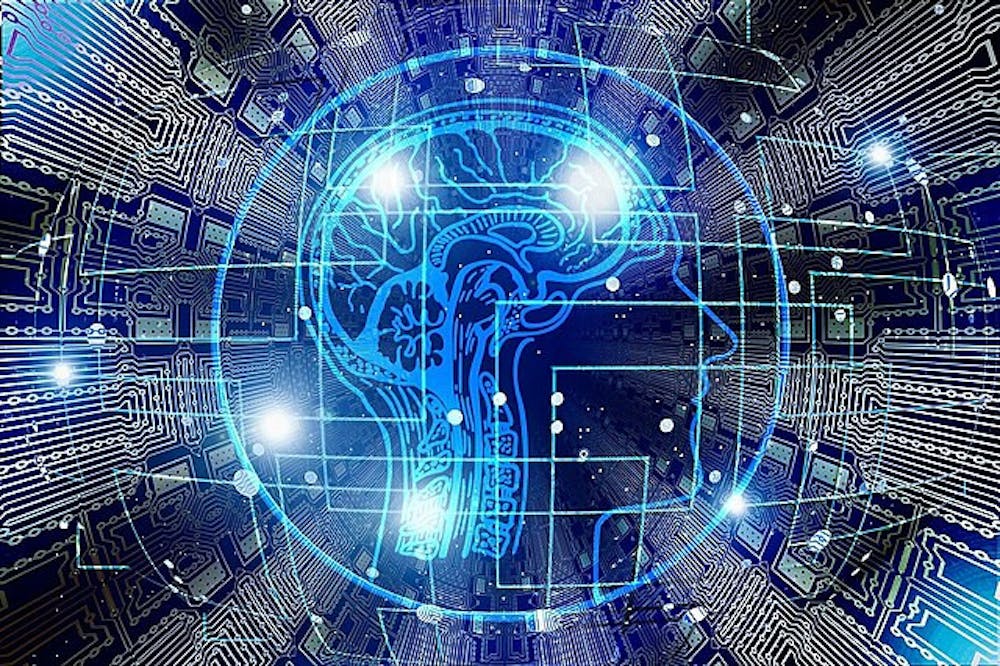Working this summer as an engineer for a company that automates tasks in warehouses, I found myself constantly explaining my job in conversation with fellow engineers, students and even strangers on the bus. For three months, I was an unwilling defender of the existence of artificial intelligence (AI) — an existence that, for many, seems to foreshadow a hostile takeover of the human race. These concerns, while hyperbolic, betray a deeper current of unrest surrounding the recent advances in public-facing AI. I believe that by looking at our past, engineers and automators can understand these concerns and plan for a not-so-distant, remarkably different future.
John Steinbeck’s novel, The Grapes of Wrath, portraying the abrupt changes caused by new technology, provides a historic parallel to the world we live in today. The story follows the Joads, a family of Oklahoma-based tenant farmers who are evicted from their land after their landlord begins using tractors. To the Joads, the tractors, which can do the work of several dozen families, are “monsters” — they symbolize the greed of landlords, the mechanized violence of war and the tendency of humans to abandon nature for convenience. Yet, before the tractors are symbols, they are machines — designed, built and deployed by humans.
In the Dust Bowl years of the Great Depression, nobody believed that what they had was enough. The Joads’ landlords, for example, employed the tractor that could automate their tenants’ work, as they sought more security in their wealth. A machine capable of doing the work of dozens of men was, and will always be, attractive to those most concerned with their bottom line.
Still, it is clear that the suffering caused by total economic collapse took a very different form for those already living humbly. One of the key moments in the book centers around the destruction of food when its price drops below the cost of harvesting it. Steinbeck writes of the thousands of wasted oranges: “A million people hungry, needing the fruit — and kerosene sprayed over the golden mountains.”
There is incredible human cruelty at the heart of the novel — the kind of cruelty that possesses a person to withhold food from a starving child, to let it rot on the vine instead. However, one of the key tools that caused this level of poverty, that moved farmers away from self-sustenance and toward begging for food, was a machine — a machine and therefore incapable of cruelty, yet tailor-made to disrupt and alter comfortable ways of life.
As an engineer whose designs are descendants of these pre-war machines, I am constantly cognizant of the role my work could play in future cruelty; those who work on powerful AI systems must feel the weight of their actions even more.
So, what should we as engineers do? Do we justify our work by claiming that “progress is inevitable”? And that we might as well be on the “winning side” — the side of cruelty? While this is the misanthropic easy way out, I believe we owe the world a bit more thoughtfulness.
We should regard AI as we regard the tractor looking back on the Dust Bowl – a complex tool that had to be used carefully to maximize the efficiency of human work while minimally inflicting cruelty. Debates about whether AI is “sentient” or “truly intelligent” tend to dissolve into philosophy quickly and lose sight of the effect that AI can have regardless of its sentience. Instead, the debate our society needs to have is how best to prepare for a future in which the nature of work is drastically transformed.
AI has the potential to automate much of the dull and dangerous work that we currently do and free up massive swathes of human attention for art, innovation and the betterment of ourselves and our society. It will push efficiency to new levels and increase the wealth of our species. However, if that wealth is scraped into the pockets of the few or if the quest for quick progress comes at the cost of societal stability, we can expect poverty, hopelessness and wrath to dominate the coming decades.
Engineers who best understand AI and robotics, and who are dedicating their lives to the pursuit of new technology, should consider the lessons of the past. We should support universal basic income measures, ensuring that unemployment does not spell disaster for those displaced by automation. We should consider the possibility that the expansion of AI might result in a reduction in the amount of human work needed, rather than a blind acceleration into greater efficiency and consumption. We should advocate for the slow deployment of future AI systems, ensuring that anticipation for the novel does not unseat the stability of the present.
The world is a vastly better place to live in now than it was 85 years ago when Steinbeck drafted The Grapes of Wrath, in large part thanks to technological progress. I have no doubt that 85 years from now, we will regard AI as one of the great developments of the 21st century. I only hope that, with thought, advocacy and careful support, this technological leap will be more graceful than those that came before it.
Catherine Pollard is a junior from Hudson, Massachusetts, majoring in Mechanical Engineering and minoring in Philosophy.





